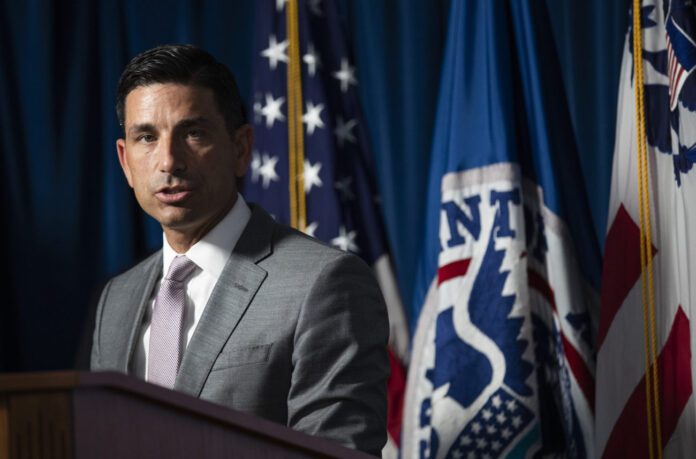U.S. District Judge George Daniels blocked the Trump administration’s attempt to implement a “public charge” rule that opponents say would impact Latino and immigrant communities disproportionately.
In the 21-page filing Wednesday, Daniels stated in part that a nationwide temporary injunction is appropriate because of the pandemic.
“(DHS) are enjoined from enforcing, applying, implementing or treating as effective the Rule for any period during which there is a declared national health emergency response to the COVID-19 outbreak,” the court ruled in part.
Daniels also noted the rule puts immigrants in a position where they have to choose between jeopardizing their health or their immigration status.
“Doctors and other medical personnel, state, and local officials, and staff at nonprofit organizations have all witnessed immigrants refusing to enroll in Medicaid or other publicly funded health coverage, or foregoing testing and treatment for COVID-19, out of fear that accepting such insurance or care will increase their risk of being labeled a ‘public charge,’” the document stated.
In August 2019, the U.S. Department of Homeland Security changed a long-standing policy with regard to legal permanent residents and green card holders seeking to renew.
The new rule would allow immigration officers to deny people from receiving a green card or visa based on the officers’ determination that the person would “likely become dependent” on government resources in the future.
The biggest change to this rule is it would allow immigration officers to consider an applicant’s non-cash benefits, such as food stamps, Section 8 housing, or Medicaid to determine whether a person could become a “public charge,” in the future.
According to DHS data, there are more than 1.39 million legal permanent residents in Texas alone that would be impacted by the new rule.
U.S. Reps. Vicente Gonzalez, D-McAllen, and Filemon Vela, D-Brownsville, each signed a letter opposing DHS’ implementation of the new rule as far back as December 2018, when the administration floated the idea of tweaking the longstanding policy.
The block by the New York federal court was the second on the rule by the same court, which in October 2019 initially blocked the new order.
In January, the Supreme Court ruled that the Trump administration could move forward with implementation of the rule despite the many legal challenges.
Since that ruling, U.S. Citizenship and Immigration Services began implementing the rule in February nationwide.
In April, opponents of the rule, including the New York Attorney General, the attorneys general of other states, asked the Supreme Court to reconsider that decision in light of the pandemic, but it declined.
The parties involved in the lower court litigation, filed with the lower court once again.
As of this posting, the Trump administration has not yet indicated whether it will appeal Wednesday’s ruling.
Executive director for the National Immigration Law Center, Marielena Hincapié, reacted to the news Wednesday.
“The court rightly recognized that in the midst of the COVID-19 pandemic, we must take care of everyone in our country, and that Trump’s public charge regulation was not just cruel but also dangerous to the health and well-being of our nation,” Hincapié said in a prepared release. “We stand with our courageous plaintiffs in their victory before the court and will continue our work to ensure that everyone — regardless of their race or birthplace — has access to the testing, health care, and economic relief they need.
“We will only get through this crisis if we come together and take care of everyone in our communities.”




